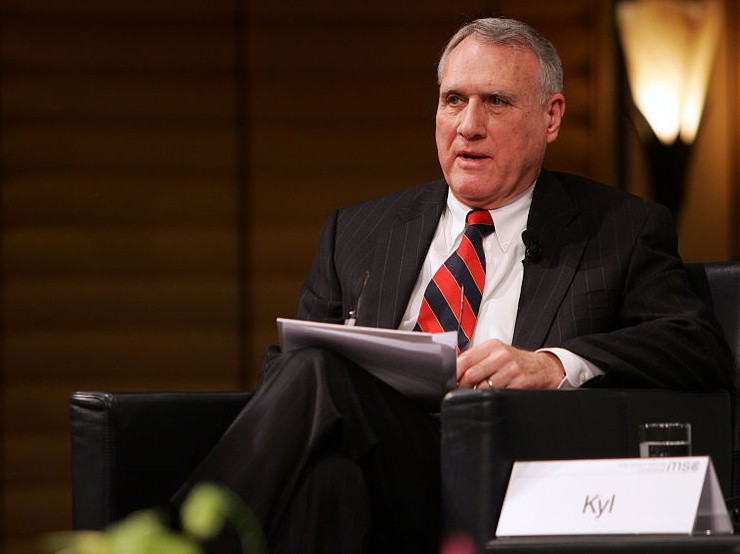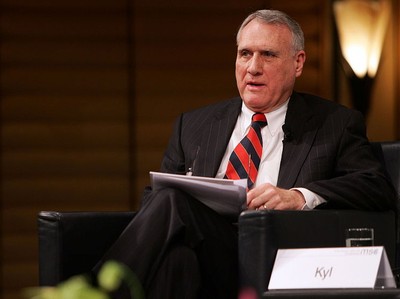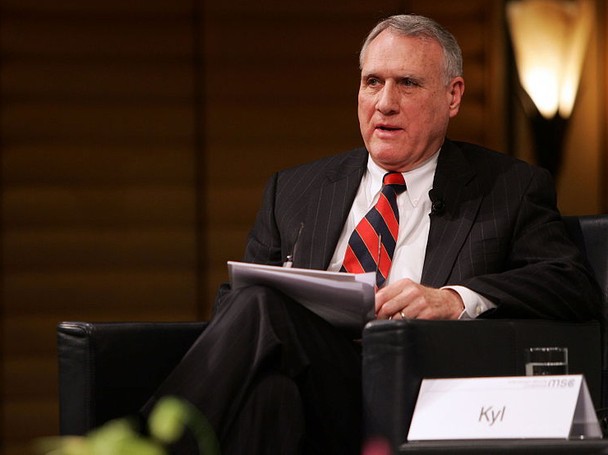

 Kai Mörk, 'Creative Commons Attribution 3.0 Germany (CC BY 3.0)
Kai Mörk, 'Creative Commons Attribution 3.0 Germany (CC BY 3.0)
Are a majority of the PPA’s lobby efforts concentrated on the federal level?
Yes, PPA’s lobby efforts tend to be focused at the federal level. But we see an interesting corollary when that happens – a lot of efforts flow downhill. For example, a lot of the federal momentum is driving everything that is happening at the state level right now. When the Unlawful Internet Gambling Act (UIGEA) passed in 2006, we didn’t see any a lot of the federal momentum is driving everything that is happening at the state level right now.
states looking at doing any type of intrastate licensing of online poker. It’s our belief that a lot of the attention we’ve brought to the issue has prompted the states to take a deeper look at licensing online poker.
And even though we tend to be more federal in our focus, in terms of where our lobbying dollars go, a lot of our members have been reaching out to their governors and state legislators. The PPA facilitates these efforts by providing pre-written letters to state lawmakers. So while there are a lot of lobby dollars spent on the federal level, there is also a big push by our members at the state level. You can find those resources and others at theppa.org/takeaction.
We could see federal legislation come from a stand-alone bill like HR 2366 (Barton bill) or as an add-on to another bill. Are there any bills on the horizon that would serve as a good vehicle for online poker legislation?
We are taking a good look at every bill that comes out. Many of us are reaching out to members of the Senate Homeland Security Committee suggesting they add poker to the cyber security bill which is good because it’s germane to the bill and has a revenue component. We have a shot at legislation right now as well as legislation introduced during the lame duck session of Congress.
Also, as a preemptive measure, we have been reaching out the House Homeland Security Committee even though there’s not a House bill yet. We are letting them know that, if this bill comes out of the Senate, it ought to include poker.
If the cyber security bill is not passed, do you see another bill that might serve as a vehicle for poker or is a poker-only bill still viable in 2012?
There are other bills moving forward, but because it’s an election year there may be a bit of a lag in terms of action going forward in those few months before the election. We have a shot at legislation right now as well as legislation introduced during the lame duck session of Congress. As for a bill moving forward as freestanding legislation, it very well could. I tend to think that it’s the kind of thing that’s more likely to be part of something germane (like security), but there’s a number of ways to move this forward.
Are you looking for another standalone bill to be introduced this year?
No. We’re not looking at another free-standing bill at this time. We would like to continue trying to push the Barton bill through committee, and then either it goes forward by itself or it gets attached to another bill. And of course there is the Campbell bill as well; we are deeply appreciative of Representative Campbell for supporting our right to play. So these are two bills we’re behind; of course the Barton bill is the main bill we are behind but we’re going to be pushing those two bills forward.
There have been rumors that Harry Reid may look to introduce a bill co-sponsored by Jon Kyl, what are your thoughts on that possibility?
That is possible, but I wouldn’t expect something freestanding; if something came out of Reid’s office I would expect it to become part of another piece of legislation because it would be germane to a number of We’re in a position now where I don’t think [Kyl] would even have a shot to expand the Wire Act to include online poker; poker players have been just way too active.
different issues on the floor of the senate. There may be some points of contention about the bills in the House (Barton, Campbell), but I think those would be addressed with amendments to that legislation going forward instead of starting from scratch with a new bill. I don’t think anyone sees any value trying to compete with the House bills already on the floor.
Jon Kyl has been a staunch opponent to online gambling, do you see his pending retirement as good or bad for online poker?
This could be a funny answer. I think it’s good, because it will encourage him to take action on poker. I think he wants a legacy on this issue. It’s an issue that he’s been working on since the mid-90s. A lot of people don’t realize how long it took for them to pass UIGEA.
I think he has a vision for how online gaming should be in the US; his vision of course is that most of it should be banned. But he has been pragmatic; he didn’t try to ban online horse racing, for example. We’re in a position now where I don’t think he would even have a shot to expand the Wire Act to include online poker; poker players have been just way too active.
Even the opponents of gambling haven’t been putting in a lot of effort to try to combat poker itself. They don’t protest Las Vegas casino either. They tend to oppose expansion of gaming because those are usually the weaker targets. But that pragmatism is benefiting us. As we get stronger our opponents tend to focus more on weaker targets, the lower hanging fruit.
If Senator Kyl doesn’t get legislation, states are going to be offering instant online scratch off tickets, the functional equivalent to an If Senator Kyl wants a lasting legacy on this issue, he needs to move federal legislation forward before states take action. So I think it’s a good thing that he has to act, and he has only a few months before retiring from the Senate.
online slot machine. Without federal legislation, states could also be in a position where they wouldn’t allow other competition, maybe not even tribal competition.
While it would be interesting to see if a state that had a gaming compact would dare implement a law like that or if it would stand up to court challenges, I don’t think that was the legacy Senator Kyl had in mind. That could develop into a landscape you would almost think of as socialized; one where states wouldn’t allow private industry to compete with their offerings.
So if I’m Kyl and I think online gaming is a bad thing, I would rather have them play this non-house banked, person-to-person, game of skill that I already know I can’t get rid of; and accept that trade off to stop a house-banked or state lottery backed game of chance that many online gambling opponents oppose more strongly than they do the game of poker.
If Senator Kyl wants a lasting legacy on this issue, he needs to move federal legislation forward before states take action. So I think it’s a good thing that he has to act, and he has only a few months before retiring from the Senate. January 20, 2013 will be the end, but they will be done on the final day of the lame duck session, the last day to have a chance to do anything.

